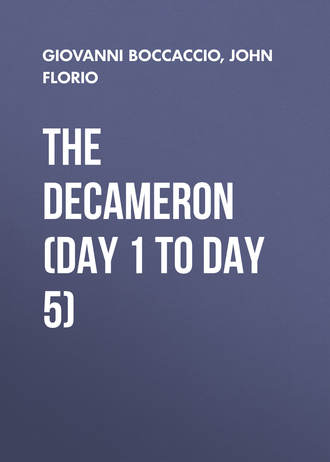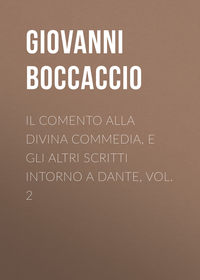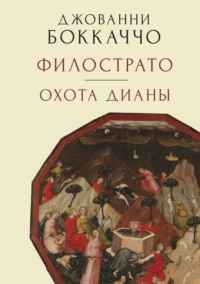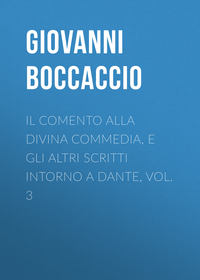 полная версия
полная версияThe Decameron (Day 1 to Day 5)
A small matter, said the Friar, & truly payed back again to the owner, in bestowing them upon the poore. Many other questions hee demaunded of him, whereto still he answered in the same manner: but before he proceeded to absolution, Maister Chappelet spake thus. I have yet one sinne more, which I have not revealed to you: when being urged by the Friar to confesse it, he said. I remember, that I should afford one day in the weeke, to cleanse the house of my soule, for better entertainement to my Lord and Saviour, and yet I have done no such reverence to the Sunday or Sabaoth, as I ought to have done. A small fault Sonne, replied the Friar. O no (quoth Maister Chappelet) doe not terme it a small fault, because Sunday being a holy day, is highly to be reverenced: for, as on that day, our blessed Lord arose from death to life. But (quoth the Confessour) hast thou done nothing else on that day? Yes, said he, being forgetfull of my selfe, once I did spet in Gods Church. The Friar smiling, said: Alas Sonne, that is a matter of no moment, for wee that are Religious persons, doe use to spet there every day. The more is your shame, answered Maister Chappelet, for no place ought to be kept more pure and cleane then the sacred Temple, wherein our dayly sacrifices are offered up to God.
In this manner he held on an houre and more, uttering the like transgressions as these; and at last began to sigh very passionately, and to shed a few teares, as one that was skilfull enough in such dissembling prankes; whereat the Confessour being much mooved, said: Alas Sonne, what aylest thou? Oh Father (quoth Chappelet) there remaineth yet one sinne more upon my conscience, whereof I never at any time made confession, so shamefull it appeareth to me to disclose it; and I am partly perswaded, that God will never pardon me for that sinne. How now Sonne? said the Friar, never say so; for if all the sinnes that ever were committed by men, or shall be committed so long as the World endureth, were onely in one man, and he repenting them, and being so contrite for them, as I see thou art; the grace and mercy of God is so great, that upon penitent confession, he will freely pardon him, and therefore spare not to speak it boldly. Alas Father (said Chappelet, still in pretended weeping) this sinne of mine is so great, that I can hardly beleeve (if your earnest prayers doe not assist me) that ever I shall obtaine remission for it. Speake it Sonne, said the Friar, and feare not, I promise that I will pray to God for thee.
Master Chappelet still wept and sighed, and continued silent, notwithstanding all the Confessors comfortable perswasions; but after hee had helde him a long while in suspence, breathing forth a sighe, even as if his very heart would have broken, he saide; Holy Father, seeing you promise to pray to God for me, I will reveale it to you: Know then, that when I was a little boy, I did once curse my Mother; which he had no sooner spoken, but he wrung his hands, and greeved extraordinarily. Oh good Son, saide the Friar, doth that seeme so great a sinne to thee? Why, men doe daily blaspheme our Lord God, and yet neverthelesse, upon their hearty repentance, he is alwayes ready to forgive them; and wilt not thou beleeve to obtaine remission, for a sinne so ignorantly committed? Weepe no more deare Sonne, but comfort thy selfe, and rest resolved, that if thou wert one of them, who nayled our blessed Saviour to his Crosse; yet being so truly repentant, as I see thou art, he would freely forgive thee. Say you so Father? quoth Chappelet. What? mine owne deare Mother? that bare me in her wombe nine moneths, day and night, and afterwards fed me with her breasts a thousand times, can I be pardoned for cursing her? Oh no, it is too haynous a sinne, and except you pray to God very instantly for me, he will not forgive me.
When the religious man perceived, that nothing more was to be confessed by Master Chappelet; he gave him absolution, and his owne benediction beside, reputing him to be a most holy man, as verily beleeving all that he had said. And who would not have done the like, hearing a man to speake in that manner, and being upon the very point of death? Afterward, he saide unto him; Master Chappelet, by Gods grace you may be soone restored to health, but if it so come to passe, that God doe take your blessed and well disposed soule to his mercy, will it please you to have your body buried in our Convent? Whereto Master Chappelet answered; I thanke you Father for your good motion, and sorry should I be, if my friends did bury me any where else, because you have promised, to pray to God for me; and beside, I have alwayes carried a religious devotion to your Order. Wherefore, I beseech you, so soone as you are come home to your Convent, prevaile so much by your good meanes, that the holy Eucharist, consecrated this morning on your high Altar, may be brought unto me: for although I confesse my selfe utterly unworthy, yet I purpose (by your reverend permission) to receive it, as also your holy and latest unction; to this ende, that having lived a greevous sinner, I may yet (at the last) die a Christian. These words were pleasing to the good olde man, and he caused every thing to be performed, according as Master Chappelet had requested.
The two Brethren, who much doubted the dissembling of Chappelet, being both in a small partition, which sundered the sicke mans Chamber from theirs, heard and understood the passage of all, betweene him and the ghostly Father, being many times scarcely able to refrain from laughter, at the fraudulent course of his confession. And often they said within themselves; what manner of man is this, whom neither age, sicknesse, nor terror of death so neere approaching, and sensible to his owne soule, nor that which is much more, God, before whose judgement he knowes not how soone he shall appeare, or else be sent to a more fearefull place; none of these can alter his wicked disposition, but that he will needes die according as he hath lived? Notwithstanding, seeing he had so ordered the matter, that he had buriall freely allowed him, they cared for no more.
After that Chappelet had received the Communion, and the other ceremonies appointed for him; weakenesse encreasing on him more and more, the very same day of his goodly confession, he died (not long after) towards the evening. Whereupon the two Brethren tooke order, that all needefull things should be in a readinesse, to have him buried honourably; sending to acquaint the Fathers of the Convent therewith, that they might come to say their Vigilles, according to precedent custome, and then on the morrow to fetch the body. The honest Friar that had confessed him, hearing he was dead, went to the Prior of the Convent, and by sound of the house Bell, caused all the Brethren to assemble together, giving them credibly to understand, that Master Chappelet was a very holy man, as appeared by all the parts of his confession, and made no doubt, but that many miracles would be wrought by his sanctified body, perswading them to fetch it thither with all devoute solemnity and reverence; whereto the Prior, and all the credulous Brethren presently condiscended very gladly.
When night was come, they went all to visit the dead body of Master Chappelet, where they used an especiall and solemne Vigill; and on the morrow, apparrelled in their richest Coapes and Vestiments, with books in their hands, and the Crosse borne before them, singing in the forme of a very devoute procession, they brought the body pompeously into their Church, accompanied with all the people of the Towne, both men and women. The Father Confessor, ascending up into the Pulpit, preached wonderfull things of him, and the rare holinesse of his life; his fastes, his virginity, simplicity, innocency, and true sanctity, recounting also (among other especiall observations) what Chappelet had confessed, as this most great and greevous sinne, and how hardly he could be perswaded, that God would grant him pardon for it. Whereby he tooke occasion to reprove the people then present, saying; And you (accursed of God) for the verie least and trifling matter hapning, will not spare to blaspheme God, his blessed Mother, and the whole Court of heavenly Paradise: Oh, take example by this singular man, this Saint-like man, nay, a verie Saint indeede.
Many additions more he made, concerning his faithfulnesse, truth, & integrity; so that, by the vehement asseveration of his words (whereto all the people there present gave credible beleefe) he provoked them unto such zeale and earnest devotion; that the Sermon was no sooner ended, but (in mighty crowds and throngs) they pressed about the Biere, kissing his hands and feete, and all the garments about him were torne in peeces, as precious Reliques of so holy a person, and happy they thought themselves, that could get the smallest peece or shred or anie thing that came neere to his body, and thus they continued all the day, the body lying still open, to be visited in this manner.
When night was come, they buried him in a goodly Marble tombe, erected in a faire Chappell purposely; and for many dayes after following, it was most strange to see, how the people of the country came thither on heapes, with holy Candles and other offerings, with Images of waxe fastened to the Tombe, in signe of Sacred and solemne Vowes, to this new created Saint. And so farre was spread the fame and renowne of his sanctity, devotion, and integrity of life, maintained constantly by the Fathers of the Convent; that if any one fell sicke in neede, distresse, or adversity, they would make their Vowes to no other Saint but him: naming him (as yet to this day they do) Saint Chappelet, affirming upon their Oathes, that infinite miracles were there daily performed by him, and especially on such, as came in devotion to visit his shrine.
In this manner lived and died Master Chappelet du Prat, who before he became a Saint, was as you have heard: and I will not deny it to be impossible, but that he may be at rest among other blessed bodies. For, although he lived lewdly and wickedly, yet such might be his contrition in the latest extreamity, that (questionlesse) he might finde mercie. But, because such things remaine unknowne to us, and speaking by outwarde appearance, vulgar judgement will censure otherwise of him, and thinke him to be rather in perdition, then in so blessed a place as Paradice. But referring that to the Omnipotent appointment, whose clemencie hath alwayes beene so great to us, that he regards not our errors, but the integrity of our Faith, making (by meanes of our continuall Mediator) of an open enemy, a converted sonne and servant. And as I began in his name, so will I conclude, desiring that it may evermore be had in due reverence, and referre we our selves thereto in all our necessities, with this setled assurance, that he is alwayes readie to heare us. And so he ceased.
Abraham a Jew, being admonished or advised by a friend of his, named Jehannot de Chevigny, travailed from Paris unto Rome: And beholding there the wicked behaviour of men in the Church, returned backe to Paris again, where yet (neverthelesse) he became a ChristianThe Second Novell
Wherein is contained and expressed, the liberality and goodnesse of God, extended to the Christian FaithThe Novell recited by Pamphilus was highly pleasing to the company, and much commended by the Ladies: and after it had beene diligently observed among them, the Queen commanded Madam Neiphila (who was seated neerest to Pamphilus) that, in relating another of hers, she should follow on in the pastime thus begun. She being no lesse gracious in countenance, then merrily disposed; made answer, that shee would obey her charge, and began in this manner.
Pamphilus hath declared to us by his Tale, how the goodnesse of God regardeth not our errors, when they proceede from things which wee cannot discerne. And I intend to approove by mine, what argument of infallible truth, the same benignity delivereth of it selfe, by enduring patiently the faults of them, that (both in word and worke) should declare unfaigned testimony of such gracious goodnesse, and not to live so dissolutely as they doe. To the end, that others illumined by their light of life, may beleeve with the stronger constancy of minde.
As I have heeretofore heard (Gracious Ladies) there lived a wealthy Marchant in Paris, being a Mercer, or seller of Silkes, named Jehannot de Chevigny, a man of faithful, honest, and upright dealing; who held great affection and friendship with a very rich Jew, named Abraham, that was a Merchant also, and a man of very direct conversation. Jehannot well noting the honesty and loyall dealing of this Jew, began to have a Religious kind of compassion in his soule, much pittying, that a man so good in behaviour, so wise and discreete in all his actions, should be in danger of perdition thorow want of Faith. In which regard, lovingly he began to entreate him, that he would leave the errors of his Jewish beleefe, and follow the truth of Christianity, which he evidently saw (as being good and holy) daily to prosper and enlarge it selfe, whereas (on the contrary) his profession decreased, and grew to nothing.
The Jew made answer, that he beleeved nothing to be so good & holy, as the Jewish Religion, and having beene borne therein, therein also he purposed to live and dye, no matter whatsoever, being able to remove him from that resolution. For all this stiffe deniall, Jehannot would not so give him over; but pursued him still day by day, reitterating continually his former speeches to him: delivering infinite excellent and pregnant reasons, that Merchants themselves were not ignorant, how farre the Christian faith excelled the Jewish falshoods. And albeit the Jew was a very learned man in his owne law, yet notwithstanding, the intire amity hee bare to Jehannot, or (perhaps) his words fortified by the blessed Spirit, were so prevalent with him: that the Jew felt a pleasing apprehension in them, though his obstinacie stood (as yet) farre off from conversion. But as hee thus continued strong in opinion, so Jehannot left not hourely to labour him: in so much that the Jew, being conquered by such earnest and continuall importunity, one day spake to Jehannot thus.
My worthy friend Jehannot, thou art extremely desirous, that I should convert to Christianity, and I am well contended to doe it, onely upon this condition. That first I will journey to Rome, to see him (whom thou sayest) is Gods generall vicar here on earth, and to consider on the course of his life and manners, and likewise of his Colledge of Cardinals. If he and they doe appeare such men to me, as thy speeches affirmes them to be, and thereby I may comprehend, that thy faith and Religion is better then mine, as (with no meane paines) thou endeavourest to perswade me: I will become a Christian as thou art, but if I finde it otherwise, I will continue a Jew as I am.
When Jehannot heard these words, he became exceeding sorrowfull, saide within himselfe. I have lost all the paines, which I did thinke to be well imployed, as hoping to have this man converted here: For, if he goe to the Court of Rome, and behold there the wickednes of the Priests lives; farewell all hope in me, of ever seeing him to become a Christian. But rather, were he already a Christian, without all question, he would turne Jew: And so (going neerer to Abraham) he said. Alas my loving friend, why shouldst thou undertake such a tedious travell, and so great a charge, as thy journey from hence to Rome will cost thee? Consider, that to a rich man (as thou art) travaile by land or sea is full of infinite dangers. Doest thou not thinke, that here are Religious men enow, who will gladly bestowe Baptisme upon thee. To me therefore it plainely appeareth, that such a voyage is to no purpose. If thou standest upon any doubt or scruple, concerning the faith whereto I wish thee; where canst thou desire conference with greater Doctours, or men more learned in all respects, then this famous Citie doth affoord thee, to resolve thee in any questionable case? Thou must thinke, that the Prelates are such there, as here thou seest them to be, and yet they must needes be in much better condition at Rome, because they are neere to the principall Pastour. And therefore, if thou wilt credit my counsell, reserve this journey to some time more convenient, when the Jubilee of generall pardon happeneth, and then (perchance) I will beare thee company, and goe along with thee as in vowed pilgrimage.
Whereto the Jew replied. I beleeve Jehannot, that all which thou hast said may be so. But, to make short with thee, I am fully determined (if thou wouldst have me a Christian, as thou instantly urgest me to be) to goe thither, for otherwise, I will continue as I am. Jehannot perceiving his setled purpose, said: Goe then in Gods name. But perswaded himselfe, that hee would never become a Christian, after hee had once seene the Court of Rome: neverthelesse, he counted his labour not altogether lost, in regard he bestowed it to a good end, and honest intentions are to be commended.
The Jew mounted on horse-backe, and made no lingering in his journey to Rome, where being arrived, he was very honourably entertained by other Jewes dwelling in Rome. And during the time of his abiding there (without revealing to any one, the reason of his comming thither) very heedfully he observed, the manner of the Popes life, of the Cardinals, Prelates, and all the Courtiers. And being a man very discreete and judicious, he apparantly perceived, both by his owne eye, and further information of friends; that from the highest to the lowest (without any restraint, remorse of conscience, shame, or feare of punishment) all sinned in abhominable luxurie, and not naturally onely, but in foule Sodomie, so that the credit of Strumpets and Boyes was not small, and yet might be too easily obtained. Moreover, drunkards, belly-Gods, and servants of the paunch, more then of any thing else (even like brutish beasts after their luxurie) were every where to be met withall. And, upon further observation, hee saw all men so covetous and greedy of coyne, that every thing was bought and solde for ready money, not onely the blood of men, but (in plaine termes) the faith of Christians, yea, and matters of divinest qualities, how, or to whomsoever appertaining, were it for sacrifices or benefices, whereof was made no meane Merchandize, and more Brokers were there to be found (then in Paris attending upon all Trades) of manifest Symonie, under the nice name of Negotiation, and for gluttony, not sustentation: even as if God had not knowne the signification of vocables, nor the intentions of wicked hearts, but would suffer himselfe to be deceived by the outward names of things, as wretched men commonly use to doe.
These things, and many more (fitter for silence, then publication) were so deepely displeasing to the Jew, being a most sober and modest man; that he had soone seene enough, resolving on his returne to Paris, which very speedily he performed. And when Jehannot heard of his arrivall, crediting much rather other newes from him, then ever to see him a converted Christian; he went to welcome him, and kindly they feasted one another. After some fewe dayes of resting, Jehannot demaunded of him; what he thought of our holy father the Pope and his Cardinals, and generally of all the other Courtiers? Whereto the Jew readily answered; It is strange Jehannot, that God should give them so much as he doth. For I will truly tell thee, that if I had beene able to consider all those things, which there I have both heard and seene: I could then have resolved my selfe, never to have found in any Priest, either sanctity, devotion, good worke, example of honest life, or any good thing else beside. But if a man desire to see luxury, avarice, gluttony, and such wicked things, yea, worse, if worse may be, and held in generall estimation of all men; let him but goe to Rome, which I thinke rather to be the forge of damnable actions, then any way leaning to grace or goodnesse. And, for ought I could perceive, me thinkes your chiefe Pastour, and (consequently) all the rest of his dependants, doe strive so much as they may (with all their engine arte and endeavour) to bring to nothing, or else to banish quite out of the world, Christian Religion, whereof they should be the support and foundation.
But because I perceive, that their wicked intent will never come to passe, but contrariwise, that your faith enlargeth itselfe, shining every day much more cleare and splendant: I gather thereby evidently, that the blessed Spirit is the true ground and defence thereof, as being more true and holy then any other. In which respect, whereas I stood stiffe and obstinate against the good admonitions, and never minded to become a Christian: now I freely open my heart unto thee, that nothing in the world can or shall hinder me, but I will be a Christian, as thou art. Let us therefore presently goe to the Church, and there (according to the true custome of your holy faith) helpe me to be baptized.
Jehannot, who expected a farre contrary conclusion, then this, hearing him speake it with such constancy; was the very gladdest man in the world, and went with him to the Church of Nostre Dame in Paris, where he requested the Priests there abiding, to bestow baptisme on Abraham, which they joyfully did, hearing him so earnestly to desire it. Jehannot was his Godfather, and named him John, and afterward, by learned Divines he was more fully instructed in the grounds of our faith; wherein he grew of greatly understanding, and led a very vertuous life.
Melchisedech a Jew, by recounting a Tale of three Rings, to the great Soldan, named Saladine, prevented a great danger which was prepared for himThe third Novell
Whereby the Author, approving the Christian Faith, sheweth, how beneficiall a sodaine and ingenious answer may fall out to bee, especially when a man finds himselfe in some evident dangerMadame Neiphila having ended her Discourse, which was well allowed of by all the company; it pleased the Queene, that Madam Philomena should next succeede in order, who thus began.
The Tale delivered by Neiphila, maketh mee remember a doubtfull case, which sometime hapned to another Jew. And because that God, and the truth of his holy Faith, hath bene already very wel discoursed on: it shall not seeme unfitting (in my poore opinion) to descend now into the accidents of men. Wherefore, I will relate a matter unto you, which being attentively heard and considered; may make you much more circumspect, in answering to divers questions and demands, then (perhaps) otherwise you would be. Consider then (most woorthy assembly) that like as folly or dulnesse, many times hath overthrowne some men from place of eminencie, into most great and greevous miseries: even so, discreet sense and good understanding, hath delivered many out of irksome perils, and seated them in safest security. And to prove it true, that folly hath made many fall from high authority, into poore and despised calamity; may be avouched by infinite examples, which now were needeless to remember: But, that good sense and able understanding, may proove to be the occasion of great desolation, without happy prevention, I will declare unto you in very few words, and make it good according to my promise.
Saladine, was a man so powerfull and valiant, as not onely his very valour made him Soldan of Babylon, but also gave him many signall victories, over Kings of the Sarrazens, and of Christians likewise. Having in divers Warres, and other magnificent employments of his owne, wasted all his treasure, and (by reason of some sodaine accident happening to him) standing in neede to use some great summe of money, yet not readily knowing where, or how to procure it; he remembred a rich Jew named Melchisedech, that lent out money to use or interest in the City of Alexandria. This man he imagined best able to furnish him, if he could be won to do it willingly: but he was knowne to be so gripple and miserable, that hardly any meanes would drawe him to it. In the end, constrained by necessity, and labouring his wits for some apt device whereby he might have it: he concluded, though hee might not compell him to do it, yet by a practise shadowed with good reason to ensnare him. And having sent for him entertained him very familiarly in his Court, and sitting downe by him, thus began.









